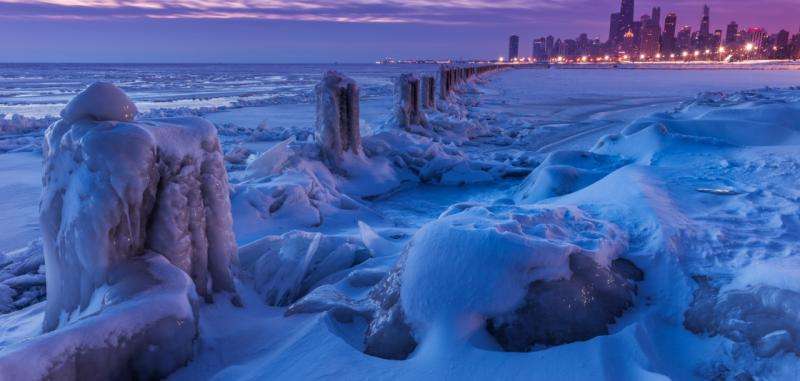Sea ice loss likely no factor in cold Northern Hemisphere winters

The rapid loss of Arctic sea ice is a major driver of the warming trend sweeping across the Arctic in recent years, but melting sea ice is probably not behind recent cold winters in parts of Europe, Asia and the United States, according to a new NOAA study.
Paradoxically, accelerated warming of the Arctic has coincided in recent years with several unusually cold winters in the Northern Hemisphere's mid‐latitude continents. This winter weather pattern has been referred to as "warm Arctic, cold continents," and some scientists theorize that it's being driven by the loss of sea ice.
Instead, the cold winters appear to be within the range of natural variation, said lead author Lantao Sun, a researcher with the Cooperative Institute for Research in Environmental Sciences at the University of Colorado. The researchers did find a link between Arctic sea ice loss and mid‐latitude weather, however.
"Our results suggest that the southward moving Arctic air masses are simply less cold, on average," said co‐author Martin Hoerling, a NOAA scientist. The paper was published in the journal Geophysical Research Letters.
That means extremely cold winters over the Northern Hemisphere will become less likely as the climate warms, the scientists say.
More information: Lantao Sun et al. What Caused the Recent "Warm Arctic, Cold Continents" Trend Pattern in Winter Temperatures?, Geophysical Research Letters (2016). DOI: 10.1002/2016GL069024
Journal information: Geophysical Research Letters
Provided by NOAA Headquarters



















